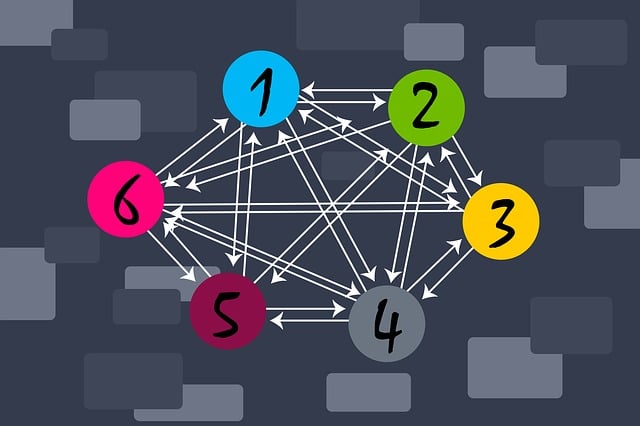AI-powered intelligent search revolutionizes data retrieval by going beyond keyword matching. Utilizing NLP and machine learning, these algorithms understand context, user intent, and behavior to deliver personalized, highly accurate results. This transforms traditional search functions across industries, enhancing productivity and efficiency while presenting challenges like data privacy and model bias that require continuous addressing.
In today’s data-driven world, efficient information retrieval is paramount. AI-powered search emerges as a game-changer, revolutionizing how we interact with knowledge. This article explores the potential and challenges of integrating intelligent search technologies into our digital landscape. From enhancing traditional search functions to unlocking unprecedented insights, AI search promises to transform the way we navigate information. We delve into its benefits, from personalized results to improved accuracy, while also addressing key challenges such as data privacy and ethical considerations.
- Unlocking the Power of AI-Powered Search
- How AI Transforms Traditional Search Functions
- Benefits and Challenges of Implementing Intelligent Search Technologies
Unlocking the Power of AI-Powered Search

The future of information retrieval is here with AI-powered search, revolutionizing how we interact with data. Traditional search engines rely on keyword matching, often leading to irrelevant results and a frustrating user experience. Intelligent search algorithms, however, go beyond basic keywords by understanding context, semantics, and user intent. They analyze vast amounts of data, learn from patterns, and deliver highly accurate and personalized search outcomes.
This advanced technology employs natural language processing (NLP) and machine learning techniques to interpret complex queries, ensuring users get the information they need swiftly. By adapting to individual preferences and behaviors, AI search provides a dynamic and intuitive experience. Whether it’s sifting through vast document collections, exploring online databases, or navigating e-commerce sites, AI-driven search enhances productivity, saves time, and offers an unparalleled level of precision in content discovery.
How AI Transforms Traditional Search Functions

Artificial intelligence (AI) is revolutionizing traditional search functions, enhancing user experiences and outcomes. Intelligent search goes beyond simple keyword matching by understanding context, intent, and user behavior to deliver more relevant results. AI algorithms can analyze vast amounts of data, including text, images, and voice queries, to provide personalized suggestions tailored to individual preferences and needs.
This transformation enables advanced features like natural language processing (NLP), where search engines can interpret complex questions and commands, returning precise answers or a list of options. Additionally, machine learning algorithms adapt over time, continually refining search results based on user feedback and interaction patterns. As a result, AI-powered search becomes increasingly efficient and effective, fostering seamless navigation through information and data in today’s digital landscape.
Benefits and Challenges of Implementing Intelligent Search Technologies

The implementation of intelligent search technologies offers a multitude of benefits for users and organizations alike. By leveraging artificial intelligence (AI), search functions become more accurate, contextually relevant, and able to understand complex user queries. This results in faster, more efficient information retrieval, enhancing productivity and decision-making processes. For instance, AI algorithms can analyze vast data sets, learn from user behavior, and provide personalized search results tailored to individual preferences and needs. Additionally, natural language processing (NLP) capabilities enable intuitive interactions, allowing users to communicate with systems using everyday language, rather than rigid keywords or phrases.
Despite these advantages, there are significant intelligent search challenges to consider. Data privacy and security concerns are paramount, as AI models require access to large datasets for training and continuous learning. Ensuring user data remains secure and confidential is crucial, particularly in industries with strict compliance regulations. Another challenge lies in the potential for biased or inaccurate results due to the quality and diversity of training data. Models might perpetuate existing societal biases if not carefully monitored and refined. Moreover, keeping up with rapid technological advancements requires ongoing development, maintenance, and updates to maintain model effectiveness and relevance over time.
AI-powered search represents a significant evolution in how we interact with information, offering unprecedented efficiency and precision. By leveraging intelligent search technologies, businesses can unlock new levels of data accessibility, enhancing user experiences and driving innovation. However, navigating the benefits requires addressing challenges such as bias, privacy concerns, and ensuring these systems remain ethical and transparent. As AI continues to advance, the future of search looks promising, with intelligent search becoming an indispensable tool for navigating the vast landscapes of knowledge.
